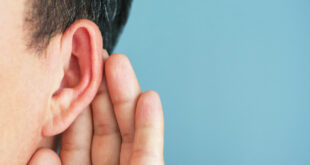If you’re in your 60s, it’s quite likely you grew up without the word ‘stress’ being used quite as often as it now is. When you did hear it, it was more in the context of physics than psychology (as in: ‘The metal rod was placed under stress until it broke.’). Which is not to say psychological stress didn’t exist back in the day. It most certainly did, but those who experienced it were more likely to express the symptoms in terms of feeling ‘stretched to breaking point,’ ‘strung-out,’ or suffering from ‘nervous exhaustion.’ It wasn’t common to head to the GP with stress-related complaints, and when one did (because things had become serious), prescription medication was often the first ‘port-of-call.’
The word ‘stress,’ however, has been used, in the psychological sense, since 1936, when scientist Hans Selye first addressed it as a term to describe ‘the non-specific response of the body to any demand.’ Those who experience unhealthy levels of stress will understand what Selye was referring to, as stress symptoms can be many and varied. They encompass a seemingly inexhaustible list including, among others, panic attacks, sore eyes, high blood pressure, indigestion, muscle aches, and fatigue, and they can bring us to our knees if not addressed.
Before those symptoms set in, however, we often receive warning signs, and if we are alert to them, we can work towards averting a crisis situation. Warning signs we are becoming stressed to an unhealthy degree include frustration, changes in sleep pattern, negative thinking, ongoing exhaustion, and a feeling of being less connected with others and the world in general.
Working towards addressing stress, is something we all need to be vigilant about, and there are a number of ways in which we can do this. If we are engaged in a demanding activity (whether it’s writing a report or caring for another) we need to make time for breaks. These can be as simple as a quick ten minute walk round the block, or a sit-down with a cuppa, and a flick through a magazine. Others find a few minutes of deep breathing, engaging with a mindfulness app, or colouring in a pattern book, can help. The last thing we should do in the face of stress signs, is grit our teeth and carry on, regardless.
Building ‘sleep hygiene’ into our lives is also helpful because a lack of sleep contributes to the release of the stress hormone, cortisol. Sleep hygiene is often overlooked but can include habits such as ditching screen time at least an hour before bedtime, not taking mobile devices into the bedroom, and aiming for 7 to 8 hours sleep a night.
Regular exercise is important for stress reduction, too, as is planning for enjoyable activities you look forward to. If these can include socialising with others, all the better. If you’re not a ‘people person,’ make your socialising an activity rather than a chatty time, by joining a walking group or a men’s shed, or enrolling in a class activity such as choir or writing group.
Managing stress is also about taking time out for some regular self-pampering. Some people do this with a long hot soak in a bath infused with bath salts, while others enjoy indulging the senses with the relaxing fragrances of essential oils. Whether you do this through steam-inhalation or by using an essential oil diffuser, the signal to your brain is ‘this is me-time.’ With massage, our body has an opportunity to respond; muscles relax, concerns become more manageable, and a sense of calm prevails. If this doesn’t happen, it’s a sure clue we should head to our medical professional for advice.
Whatever we call unhealthy stress, we owe it to ourselves to do all we can to reduce it.









Join the Discussion
Type out your comment here:
You must be logged in to post a comment.